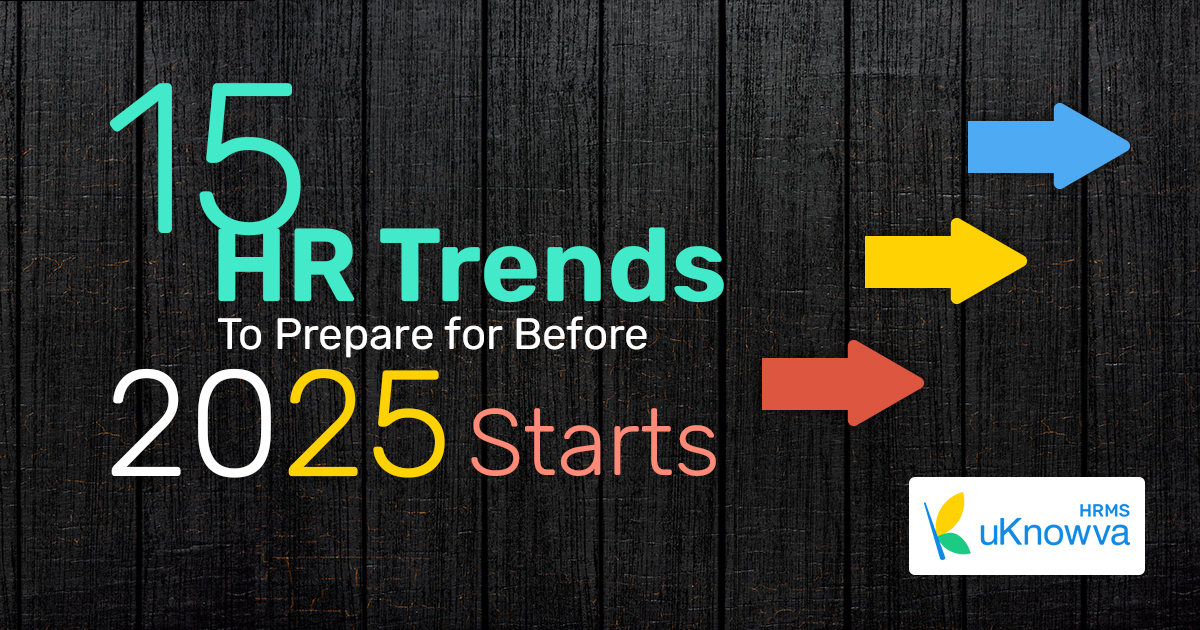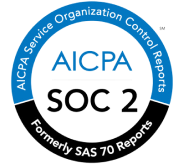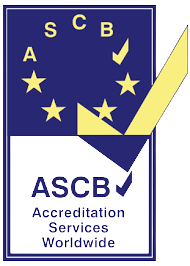Table of Content
Introduction
As we are getting closer to 2025, the role of Human Resources (HR) continues to undergo rapid transformation as new HR trends are making their way into the market.
In 2020, Gartner conducted a survey in which 52 HRs participated, & they found that:
- 94% of organisations made higher investments in their wellbeing programs
- 85% increased support for mental health-related benefits
- 50% of organisations also provided additional support for physical well-being
- 38% improved support for financial benefits (source)
These stats tell us that the year 2025 will be dominated by new HR trends and techniques to manage the organisation in a more efficient manner.
The society we live in is an ever evolving place. To manage it all, HRs bring out new ways, approaches and trends to manage their employees as well as stay competitive in the market.
Let's discuss these HR trends in a more detailed manner.

15 HR trends that will dominate the workplace landscape in 2025
- Hybrid Work Models
By 2025, the hybrid work model—where employees divide time between working remotely and in the office, will become the norm.
HR professionals will need to develop policies that accommodate this flexibility while ensuring productivity and engagement across distinct teams.
Organisations will have to invest in advanced HR software to support seamless collaboration, regardless of location.
Features like meeting rooms, project management, timesheets, and social intranet will become essential to maintain team cohesion and productivity.
- Employee Well-being as a Priority
As mental health is becoming a critical issue in the workplace, organisations will need to prioritise holistic employee well-being. They have to include various health benefits for mental and emotional health support.
Employees are demanding more from their employers in terms of mental health resources, flexible work arrangements, and wellness programs.
Companies will have to offer mental health support through Employee Assistance Programs (EAPs), counselling services, and mental health days to ensure that employees are happy.
Providing resources such as mindfulness training, stress management workshops, and financial well-being programs will help employees maintain a healthy work-life balance, prevent burnout and improve individual productivity ratios.
- AI-Powered HR Processes
Artificial intelligence (AI) will revolutionise HR processes by automating redundant and labour-intensive tasks. Speeding up delivery of critical projects helps make informed decisions for strategic HR partners.
Recruitment will be through AI-powered HR tools that can scan resumes, match candidates to job openings, and even conduct initial interviews.
Most recent example is the CV Parser which uKnowva HRMS provides to its customers for parsing resumes based on skills and keyphrases.
- Shift from Degrees to Skills
In the future, one can say that hiring decisions will focus more on skills and competencies rather than formal education.
As industries evolve and the need for digital and soft skills increases, companies will prioritise practical experience and skills over traditional degrees.
By 2025, organisations will seek employees who will exhibit adaptability, critical thinking, problem-solving abilities, and digital literacy.
This shift will also entail robust learning and development programs to reskill and upskill employees.
Companies that invest in continuous learning opportunities will train their workforce to be agile and competitive.
- Data-Driven HR Decision Making
HR departments will increasingly rely on people analytics to make informed decisions about recruitment, employee engagement, and performance management.
HR teams can predict turnover by analysing their employee data, can identify potential candidates, and eliminate the root causes of employee engagement.
People analytics can also help track the effectiveness of HR initiatives, allowing organisations to make data-backed improvements.
- Diversity, Equity, Inclusion (DEI), and Belonging
The importance of Diversity, Equity, and Inclusion (DEI) will continue to grow as one of the crucial HR trends to follow up in 2025.
Organisations will focus on fostering a culture of belonging as well simultaneously.
DEI will no longer be limited to recruitment quotas. Instead, such initiatives will create a workplace to empower the working professionals.
Organisations will implement sustainable DEI strategies. This includes:
- Addressing unconscious bias in hiring and promotions,
- Providing training on inclusivity, and
- Creating affinity groups where employees can share their experiences.
Such initiatives are always the best HR trends that make way for sustainable and scalable growth for the culture the company aspires to build.
- Agile HR Practices
Agility will be one of the key HR trends by 2025.
Traditionally, HR has been known for structured, rule-based approaches. This will shift as organisations demand more flexibility to respond to changing business needs.
Agile HR practices will promote a feedback-driven approach to managing employees.
Agile methodologies will be applied to HR processes, allowing for quicker adjustments and continuous improvement.
Performance management, for example, will move away from annual reviews toward continuous feedback loops, where employees receive real-time input on their work.
- Growth of the Gig Economy and Freelance Workforce
When 2025 arrives, the gig economy will become a significant part of the workforce.
Organisations will more often rely on freelancers, contractors, and temporary workers to complete temporary but critical tasks and projects.
This trend presents both opportunities and challenges for HR departments, which must adapt to managing a diverse mix of in-house employees and contingent workers.
HR will need to create systems that cater to the needs of gig workers, including streamlined onboarding processes, project-based compensation models, and clear communication channels.
Companies will also need to find ways to integrate gig workers into the company culture, even if they are only with the organisation for a short period.
- Employee Experience (EX) as a Competitive Advantage
Employees today are looking for more than just a paycheck—they want a fulfilling and meaningful work experience.
HR professionals will need to focus on creating a seamless, positive employee experience by providing personalised career development opportunities, fostering a culture of recognition, and offering flexible working conditions.
Companies that prioritise employee experience will not only improve retention but also build a strong employer brand that attracts top talent.
- Leadership Development and Succession Planning
As the workforce ages and Baby Boomers retire, leadership development and succession planning will become a critical focus for organisations.
Companies will need to identify and nurture future leaders early in their careers, providing them with the skills and experiences needed to take on leadership roles.
This may involve mentoring programs, leadership training courses, and cross-functional assignments that expose potential leaders to different business aspects.
Organisations can ensure continuity and long-term success by developing a strong pipeline of future leaders.
- Workforce Flexibility
Flexibility will become a key differentiator for companies by 2025.
Employees are demanding more control over when and where they work.
Organisations that offer flexible work arrangements will have a competitive edge in working with the fine talent onboard.
This flexibility includes aspects like compressed workweeks, part-time schedules, and remote work options.
HR will need to design work from home or work from office policies that accommodate various employee needs while maintaining productivity.
This may involve rethinking how to measure and monitor individual and team performance, and get the desired output in record time.
- Corporate Social Responsibility (CSR)
Corporate Social Responsibility (CSR) will become central to employer branding and employee engagement strategies as a part of the HR trends to apply in 2025.
Gen Z is entering the workplace next year in greater numbers. They pay more importance to greener initiatives like:
- Saving trees,
- Reserving water,
- Harvesting organic products,
- Implementing healthy work-life balance for stability and mental peace.
HR departments will work closely with the management to ensure such sustainability factors are rooted deeply in their firm’s mission statements.
- Tech-Enhanced Learning and Development
By 2025, emerging technologies like virtual reality (VR), augmented reality (AR), and AI-powered platforms will heavily influence learning and development.
These technologies create more enticing and personalised learning experiences, allowing employees to do pace learning in environments that closely mimic real-world scenarios.
This will make continuous learning more accessible and effective, helping employees stay relevant in a rapidly changing job market.
- Automation of Administrative HR Tasks
Automation will play a crucial role in streamlining HR operations, freeing up time for more strategic initiatives.
In 2025, AI and robotic process automation (RPA) will automate HR tasks such as payroll processing, benefits administration, and scheduling.
This will allow HR professionals to focus on higher-value activities, such as:
- Talent development,
- Employee engagement, and
- Strategic workforce planning.
Automation will also improve the accuracy and efficiency of HR processes, reducing errors and delays.
- Employee Retention Strategies Become Critical
By 2025, organisations will need to invest in comprehensive HR trends that address compensation and benefits, career development, work-life balance, organisational culture, etc., issues to resolve and sustain.
Offering clear career opportunities, competitive salaries, flexible work arrangements, and a positive work environment will be essential in retaining top performers.
Conclusion
These 15 global HR trends play an important role in shaping the organisation’s overall culture and employee experiences.
These upcoming trends give us an insight into the changing landscape of workplaces and make us feel more technologically advanced and satisfied.
uKnowva HRMS offers a smart suite to streamline all the HR tasks while keeping the upcoming HR trends in mind. It boosts the efficiency of the organisation at all the levels of an hierarchy.
FAQs on 15 HR Trends 2025 to Prepare For Right Away
- Why is employee well-being a key HR trend in 2025?
Companies that focus on employee well-being, including mental health initiatives and wellness programs, will see improved employee satisfaction, reduced burnout, and higher retention rates, making it a key HR trend in 2025.
- What is the importance of continuous learning and upskilling in HR?
In 2025, continuous learning and upskilling will be essential to keep up with the rapidly changing business environment and technological advancements.
- How can companies ensure ethical AI use in HR?
To ensure ethical AI use in HR, companies need to focus on transparency and fairness. This means providing clear explanations for AI-driven decisions, such as hiring and promotions, and regularly monitoring AI systems for potential bias.












